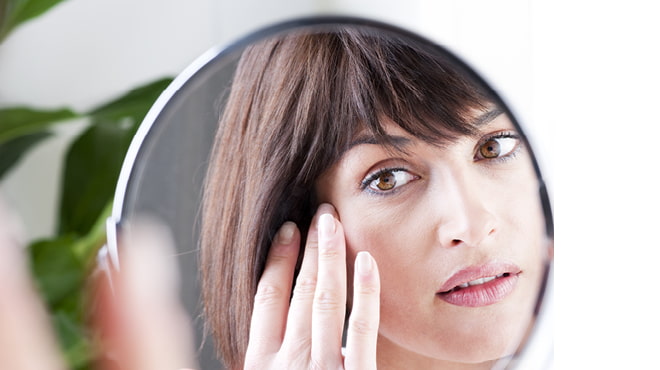Recent Posts
The facts about chest acne

Acne is a skin condition that nearly everyone deals with at some point in their lives.
Acne can develop as whiteheads, blackheads or deeper pimple lesions that are caused by multiple factors, including:
- Bacteria
- Clogged pores or hair follicles
- Increased oil production
- Inflammation of the skin
- Overgrowth of cutibacterium acnes
The unfortunate truth is that acne has no boundaries. It's more common for teenagers, but it can develop in people of all ages and equally affects people of all genders. Acne can appear anywhere you have oil glands in your skin, so it can be on your back, face, stomach, shoulders or chest.
Why does my chest have acne?
Chest acne develops the same way as acne on other parts of your body, but some specific factors lead to the development of chest acne, including:
- Excessive sweating followed by not cleansing promptly.
- Friction pressure on your skin from clothing and backpacks.
- Using skin care products that clog pores like lotions and creams that contain oil.
Other factors can make acne worse, including:
- Certain medications
Examples include corticosteroids, testosterone, lithium and some chemotherapy medications. - Hormones
Hormonal changes during puberty, pregnancy and midlife can cause your glands to produce more oil and lead to increased acne. - Stress
Stress doesn't cause acne, but stress can make your acne worse. When your body is under stress, it produces hormones called androgens. In the skin, androgens stimulate hair follicles and oil glands, leading to more inflammation and development of acne.
You may have heard the myth that eating chocolate or greasy foods causes acne. Eating these foods has little to no effect on acne. If you suspect a particular food is triggering your acne, stop eating that food for some time to see if your acne improves.
It's also a myth that chest acne is the result of poor hygiene. Dirty skin does not cause acne and using harsh soap or chemicals and rough scrubbing can actually make acne worse.
How can I treat my chest acne?
Consistent care for your skin is essential in treating acne. Many treatments are available for chest acne to help you avoid skin scars, make acne less noticeable and lower the emotional stress it causes.
Use gentle cleansers and noncomedogenic creams so skin pores don't get clogged. Also, avoid coarse or rough body scrubs, which are traumatic to the skin and can worsen acne.
Over-the-counter creams, gels, lotions and body washes can provide some relief of mild inflammatory acne, including:
- Adapalene 0.1% gel
A retinoid product that works to stop pimples from forming under the skin's surface. - Benzoyl peroxide
Kills bacteria and comes in varying strength levels. - Salicylic acid
A common ingredient used to treat acne on top of the skin.
When using a new product, start with a small amount and gradually increase the frequency of use over time. Be patient with results, as it may take up to eight weeks or more to see changes in your skin.
Trying multiple treatment options can help you find the right solution, but acne can be persistent. Chest acne pimples and bumps may heal slowly. If over-the-counter products are not working, talk with your healthcare team about topical and oral medications that can help you manage your acne.
If your children under 12 have acne, talk with their healthcare team about products and ingredients to treat acne that are safe for preadolescent children.
Elizabeth Demaree, D.O., specialized in dermatology and cosmetic services in Eau Claire, Wisconsin.




